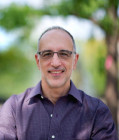America's Politicians are Listening to the Rich
This memo is part of a series written for SSN Forum on Money in Politics.
Sheldon Adelson's $20 million couldn't buy Newt Gingrich the 2012 Republican nomination. And pro wrestling mogul Linda McMahon squandered $100 million of her own money in a failed bid for a U.S. Senate seat. If the rich are having such a hard time turning dollars into votes, do we really need to worry about money distorting American politics?
Yes we do. A broader look at national trends over the past fifty years shows that politicians have in fact become increasingly responsive to the preferences of the richest Americans while virtually ignoring the middle-class and the poor. That's the conclusion I've come to after reviewing the policy preferences expressed by thousands of poor, middle-class, and affluent Americans — as recorded in opinion surveys covering the years 1964-2006 — and matching them up against the policies that elected officials actually went on to adopt.
Over four decades, federal policymaking has been fairly consistent with the preferences voiced by upper-income Americans, regardless of opposition from the less well-off. The poor and the middle class, however, are out of luck. On issues where they have differed from their more affluent compatriots, there is no relationship between the preferences they have voiced and the actions taken by policymakers in Washington.
This pattern plays out across many important issues. American trade policy, for example, has become far less protectionist since the 1970s, in line with the positions of the affluent but in opposition to those of the middle-class and the poor. Similarly, income taxes have become less progressive over the past decades, and corporate regulations have been loosened for a wide range of industries, contrary to the expressed opinions of poor and middle-class citizens.
Nor do inter-class alliances dent the influence of the well off. Even when middle-class preferences align closely with those of the poor, elected officials continue to be strongly responsive to the views of the affluent but not to those of the less well-off. Low- and middle-income Americans have been united, for example, in opposing free trade agreements such as NAFTA and the General Agreement on Tariffs and Trade. But the affluent tend to favor free trade, and the affluent generally get what they want.
Of course, total — perfectly equal — responsiveness to the public may not be ideal. At times, there are good reasons for government policy to deviate from the preferences of the majority. After all, minority rights are important too, and majorities can be misguided in ways that policymakers must try to recognize and resist. Nevertheless, gross levels of inequality in influence are incompatible with basic democratic notions of political fairness that Americans embrace.
In the United States, the increasing concentration of wealth at the very top is only tilting the balance of political power even further toward the top. If we cannot tame the influence of money in shaping government policymaking, more and more Americans will — rightly — come to feel that ours is a government of the rich, by the rich, and for the rich.
